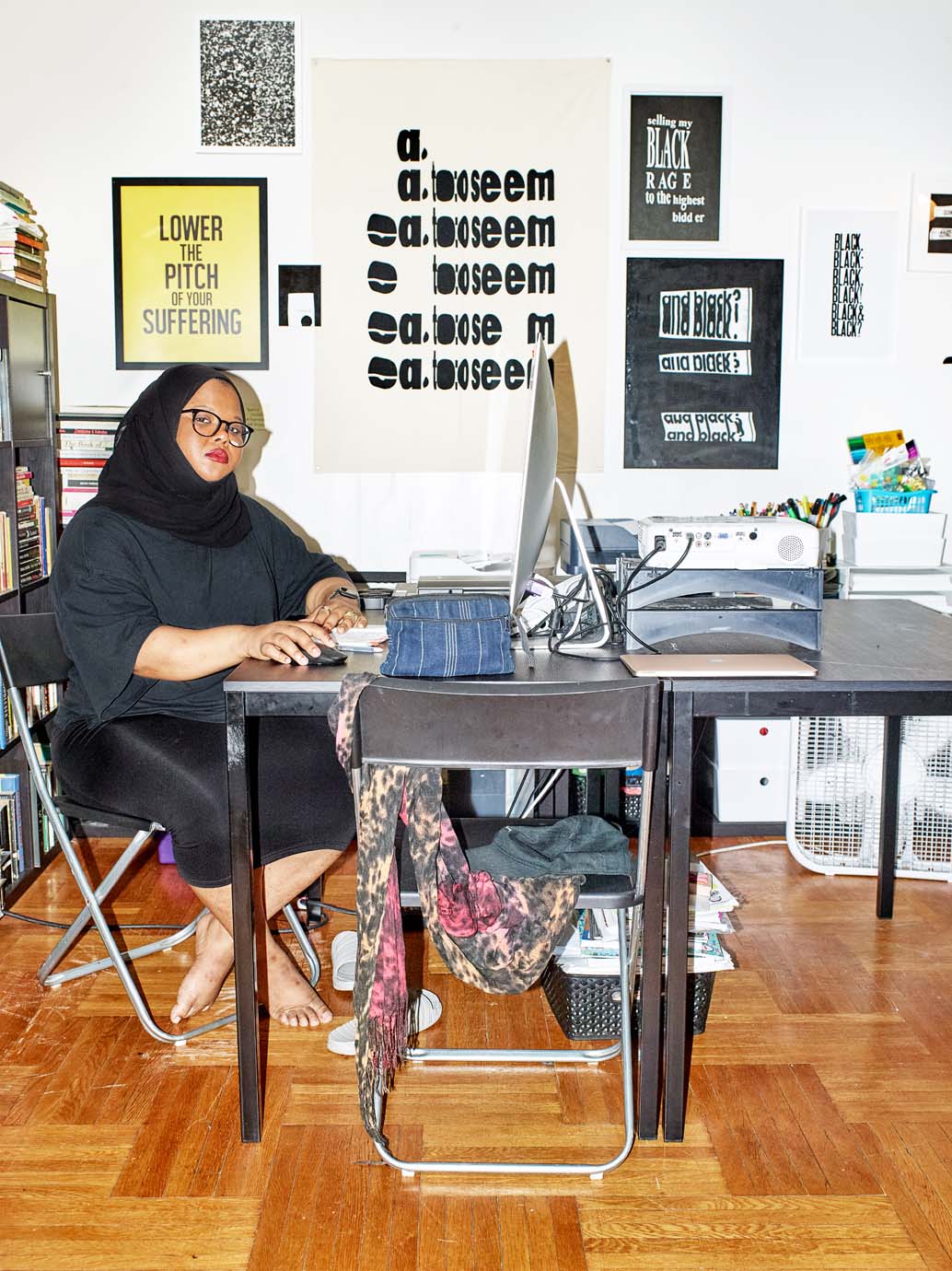
In Kameelah Janan Rasheed’s work, language is the primary material and it gushes, cleaves, and shines like paint or clay. Her recent installation at the Brooklyn Museum plastered prepositions across the front steps, a choreography for a dance already in motion, emphasizing how different bodies move through institutional space. Directionality and pacing rise to the surface often; her banner piece, Are We There Yet? (and other questions of proximity, destination, and relative comfort) (2017), evokes a journey to an indeterminate destination, complicating ideas of ‘progress’ as a purely forward motion. The sprawl of ideas spills over, and the viewer bends to catch it, “co-producing meaning,” as Rasheed says. In this way, Rasheed’s texts address urgent political questions about race and colonialism through inherently poetic strategies. She explains, “Reading experimental poetry and thinking about vernacular, I began to be really interested in the idea of a sentence that rebels against itself, or leaks a bit, or refuses to be confined by a period.” The work plays with “grammar and the rules of how to write, which are also implicit rules about the correct way to exist in the world as well.”
In smaller pieces, found text is collaged, rearranged and recontextualized on the page, disrupting the false conceit of expertise or academic clarity: this language isn’t explaining, it’s expanding. Remaining in flux is a priority. Drawing from her experiences as an elementary and high school teacher, Rasheed identifies as a learner, not an artist. “It means I can make mistakes; I have the space and opportunity to revise, redact, refine,” she says. “It’s sort of a spiritual disposition for me, too, because there’s an understanding that the universe as it exists is so large that it’s impossible for me to know everything, so I’m constantly in a state of trying to make sense of things, versus being in a state of absolute knowing. I spend a lot of time posing questions, without the desire to come to a perfect, neat, immaculate conclusion.”

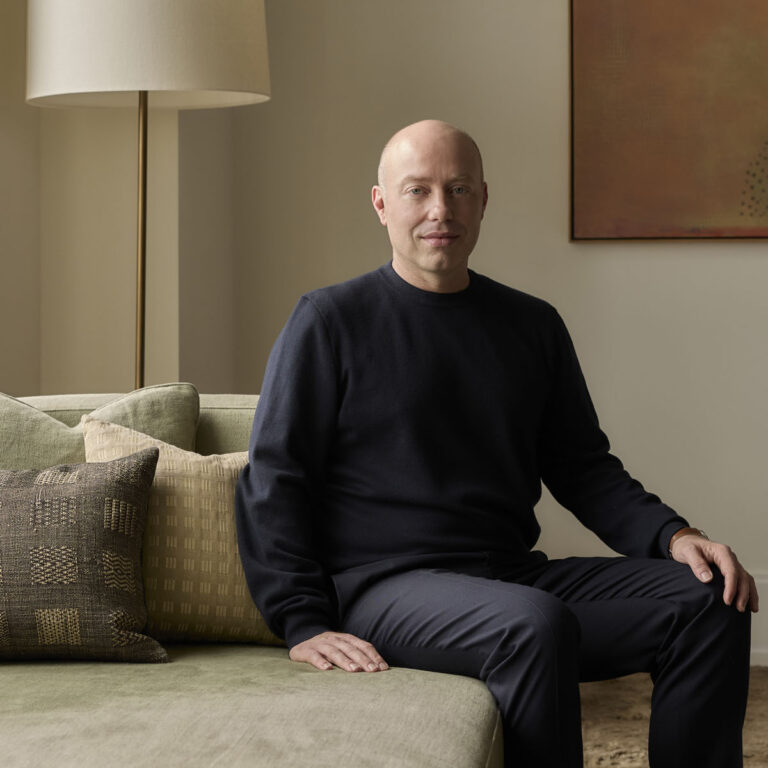
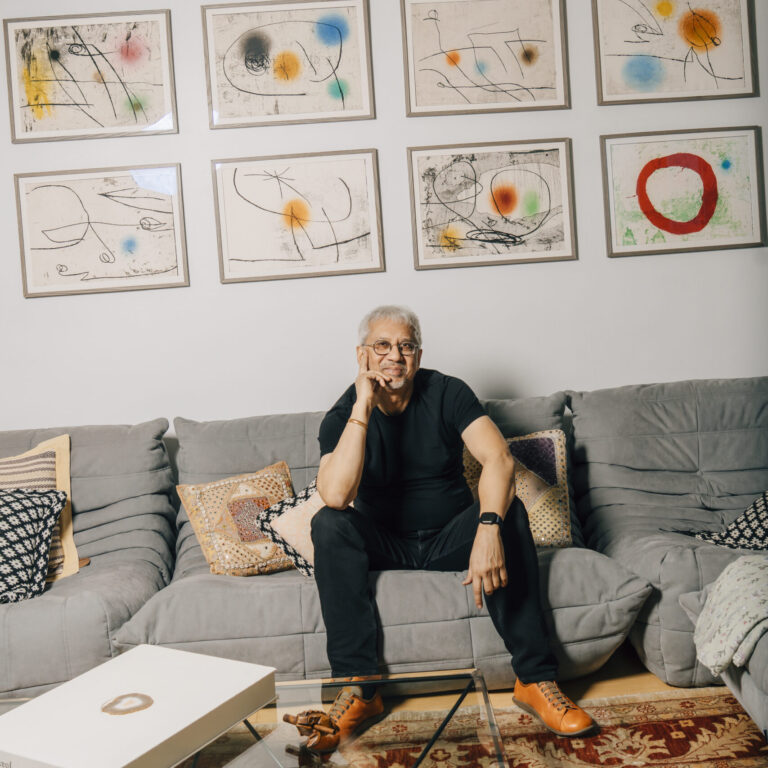
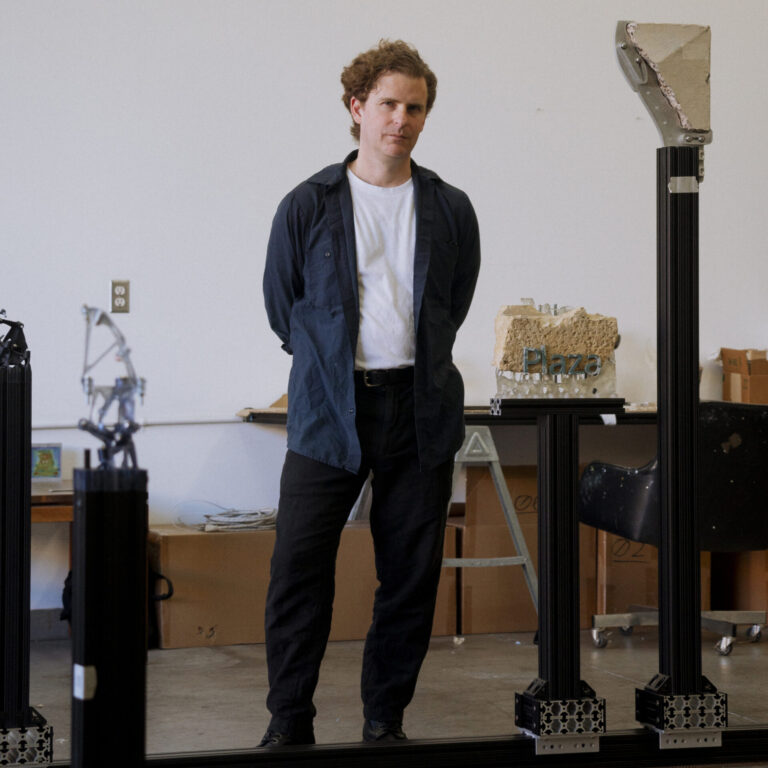
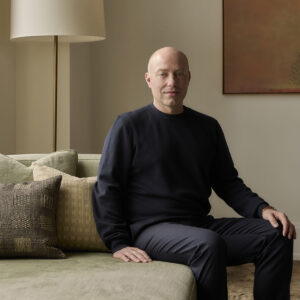
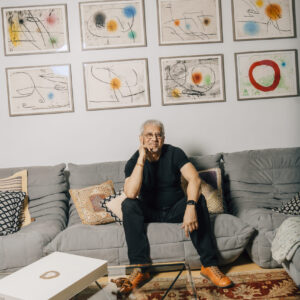
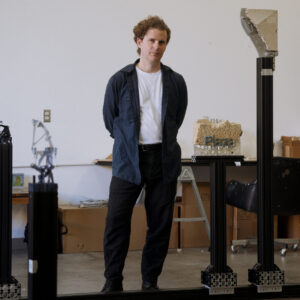



 in your life?
in your life?

